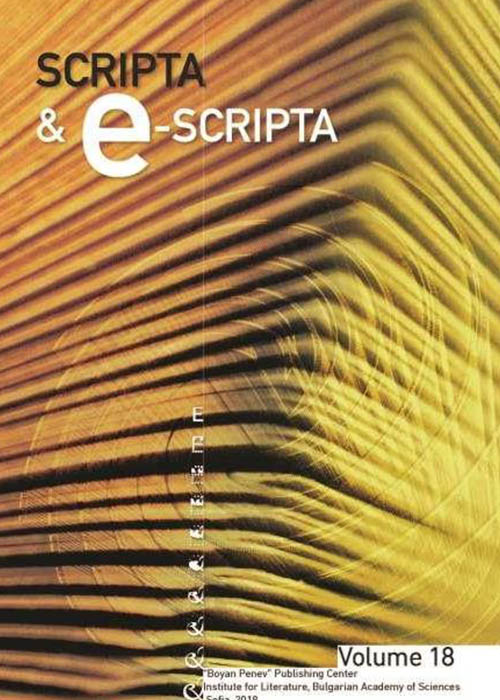Saint Parasceve’s Life by Patriarch Euthymius Translated into Latin by Rafael Levaković: A Bilingual Dictionary

- Author(s): Ivan Iliev
- Subject(s): Language and Literature Studies //
-
Published by: Institute for Literature BAS

- Print ISSN: 1312-238X
- Summary/Abstract:
The object of the article is the Latin translation of the Vita of St. Petka of Tărnovo made by Rafael Levaković from the version in Zbornik za Putnike published by Vicenzo Vuković in 1547 in Venice. This translation is precise, although the translator tends to use most eloquent style when writing in Latin. An interesting peculiarity of Levaković’s translation is probably the intentional aspiration to adhere to the gender of the words in Patriarch Euthymius’s original, to find a Latin word of the same gender as its counterpart in the original. Out of approximately 320 nouns translated, 180 have complete concurrence of gender. Moreover, there is a tendency to render consistently nouns which are of feminine gender and end in -ица with Latin nouns of feminine gender ending in -trix, -tricis, i.е. there is some consistency on the level of declension. Examples: застѫпьница f. – protectrix, cis f. In a similar way masculine nouns ending in –ьць (nomina auctoris) are translated with Latin words of masculine gender ending in –tor, -toris, for example самодрьжьць m. – imperator, oris m. In the translation there is no need of calques, because both the Slavonic and Latin were Christian literary languages in the 17th c. with a long tradition and well developed system of abstract nouns denoting Christian concepts. Rafael Levaković’s translation of the Vita of St. Petka is a precious source for the cultural connections in Europe in the 17th c. A rare attempt such as a translation from Slavonic into Latin undoubtedly is not only of interest for scholars, dealing with this material, but also a cultural fact of the Late Medieval times.
Journal: Scripta & e-Scripta vol. 12, 2013
-
Page Range: 265-272
No. of Pages: 8
Language: English - LINK CEEOL: https://www.ceeol.com/search/article-detail?id=17980
-
Ivan IlievAssoc. Prof. PhD, Plovdiv University, BulgariaDescription
Ivan I. Iliev has received PhD from the Institute for Literature, Bulgarian Academy of Sciences) and now is an Assistant Professor at the Department of Bible Studies, Faculty of Theology, Sofia University “St Kliment Ohridski”. He has a degree in Classical Philology and a Master’s degree in Old Church Slavonic from Sofia University. His interests include manuscript studies, Russian literature, eschatology and apocalypticism, Slavic studies, Classical Latin, medieval history and literature, textual criticism, and etymology.
-
SUBJECT: Language and Literature Studies //KEYWORDS:
-